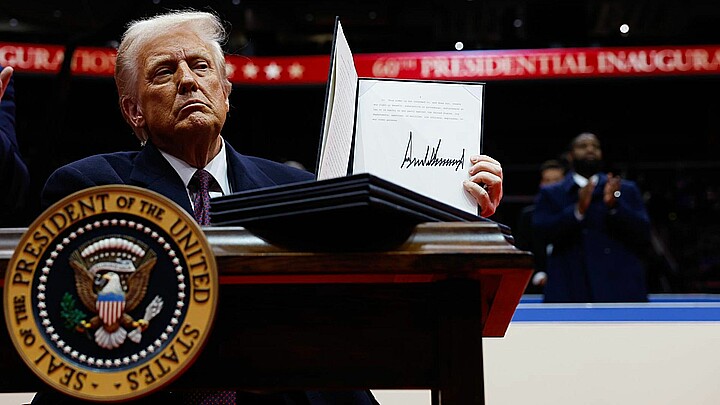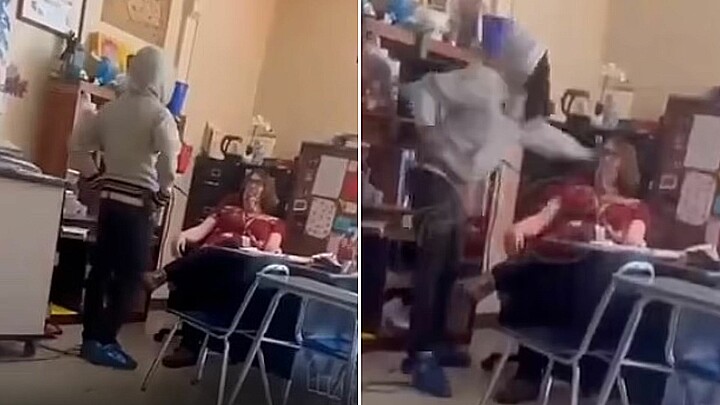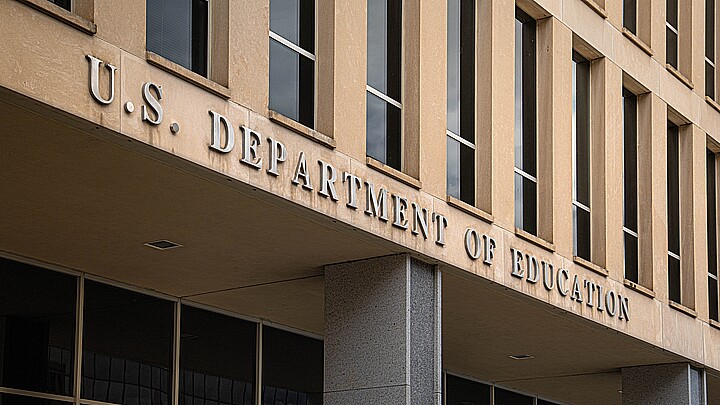Education
School boards face lawsuits, recalls for censoring public comments on hot-button issues
Federal judge suspends Pennsylvania school district's vague policy on prohibited speech while considering whether to hold officials personally liable
December 9, 2021 10:35pm
Updated: December 10, 2021 9:21pm
As school boards nationwide crack down on public comments about COVID-19, race and gender policies at their meetings, some speakers are taking to the courts and the political process to ensure that censorship carries a price.
Pennsylvania school districts are reeling from a preliminary injunction issued last month against a policy that prohibits speech the school board deems "offensive," "intolerant," "verbally abusive" or "irrelevant," among other vague terms.
U.S. District Judge Gene Pratter also banned the Pennsbury School Board from requiring speakers to announce their address before giving remarks.
The Institute for Free Speech (IFS), which is representing community members, including a former school board member, who have been "repeatedly censored," is now trying to hold district and board officials personally liable for First Amendment violations.
The government officials told Pratter in a reply brief this month that they have qualified immunity because the plaintiffs weren't "exclud[ed]" from public meetings, meaning there was no "clearly established" right violated at the time.
The judge is known for her scuttled nomination to the 3rd U.S. Circuit Court of Appeals. Then-Senate Judiciary Committee Chairman Patrick Leahy blocked it 13 years ago, citing allegations that Pratter was hostile to civil rights plaintiffs.
Her Nov. 17 memorandum suspending the "challenged policy terms" opens by quoting the play "Inherit the Wind," a fictionalized version of the 1925 Scopes "monkey" trial about the teaching of evolution in public schools. "You don't suppose this kind of thing is ever finished, do you?" a character says.
Among the incidents cited: The Pennsbury board edited out a public comment by one plaintiff from a meeting video, saying he sounded racist "dog whistles." At a subsequent meeting an official interrupted three plaintiffs for "abusive and irrelevant" comments about the district's equity program, shouting "You're done!" repeatedly at each of them.
Pratter noted the district had subsequently brought in law enforcement personnel during meetings, suggesting an active chilling effect.
Because Pennsbury is not backing down, an eventual final ruling would apply to every school board within the Eastern District of Pennsylvania's jurisdiction, from Philadelphia to Lancaster.
The injunction suggests that any district relying on the Pennsylvania School Boards Association's model policy is legally vulnerable, Philadelphia-area school districts solicitor Jeffrey Sultanik told the Inquirer.
The association told the newspaper its model policy was "under review." It was the first member to leave the National School Boards Association in protest of the latter's request for federal "domestic terrorism" investigations of school board critics. Another 16 state associations have since left, taking about 40% of NSBA's funding with them, according to National Review.
Pratter's order is likely to be invoked in similar litigation. IFS is suing Florida's Brevard County School Board for a policy banning "personally directed" comments to stop criticism but not praise.
$107,500 settlement
UCLA First Amendment law professor Eugene Volokh told Just the News that while all viewpoint-based restrictions are prohibited, there is "some uncertainty" on what restrictions are allowed in time "set aside" for public comment, citing diverging federal appeals rulings this year.
The 6th Circuit reinstated a lawsuit against the Madison (Ohio) school board for its restrictions on "antagonistic," "abusive" and "personally directed speech," which were used to shut down comments on "gun-related issues."
The district paid plaintiff Billy Ison $107,500 this week to settle the suit, before U.S. District Judge Michal Barrett could determine damages, the Journal-News reported.
Last week, however, the 4th U.S. Circuit Court of Appeals upheld a trial ruling in favor of Virginia's Loudoun County school board members and district officials who were sued by a longtime critic for banning him from school-sponsored activities several years ago.
Brian Davison had used an "aggressive tone" at a PTA meeting, accusing a school principal of violating the law and threatening to sue. He also had his children distribute flyers on school property with similar allegations.
A policy that prohibits comments "that are harassing or amount to a personal attack against any identifiable individual" is viewpoint-neutral and even "necessary to further the [limited public] forum's purpose of conducting good business," the appeals court ruled.
Loudoun County is also the setting for a recall fight stemming from allegations that the school board chair violated the First Amendment rights of speakers at meetings by shutting down comments and limiting who can speak.
Judge Jeanette Irby is overseeing the recall attempt against Brenda Sheridan and has scheduled a three-day trial for next spring, according to WTOP.
Parent group Fight for Schools, which is seeking to participate in the case, is also trying to get Commonwealth's Attorney Buta Biberaj removed from prosecuting the case, citing conflicts of interest. She was "very involved in two of the very serious incidents that gave rise to the recall," executive director Ian Prior told Fox News.
Irby previously disqualified Biberaj in a similar recall campaign against Beth Barts, who preemptively resigned, citing threats. "I would hope anyone in this room, participating in the judicial process would not resort to threats," the judge told the parties at a hearing this week.










